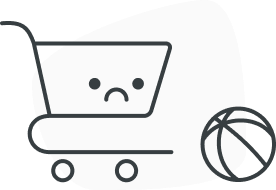Killer whales at SeaWorld help killer whales in the wild
In 2016, SeaWorld announced that we were ending our killer whale breeding program and that the orcas in our care are the last generation at our park. Our goal is to inspire and educate guests to take action by seeing these magnificent animals up-close to better understand why protecting wildlife and our environment is so critical today.
A ticket with a mission
our visit to SeaWorld helps support animal rescue efforts, with over 41,000 and counting.
This is the last generation of orcas in our care
But, they are still here and will be cared for at SeaWorld for decades to come.
Our goal is to help our guests, and the world, explore the wonders around them, and then inspire them to take action to protect wild animals and wild places. SeaWorld’s killer whales are vital to that mission, and while they will be the last generation of killer whales at SeaWorld, they will still be around for decades to come, inspiring millions of guests and people across the globe to take action with us today.
Our goal is to help our guests, and the world, explore the wonders around them, and then inspire them to take action to protect wild animals and wild places. SeaWorld’s killer whales are vital to that mission, and while they will be the last generation of killer whales at SeaWorld, they will still be around for decades to come, inspiring millions of guests and people across the globe to take action with us today.
Meet the Whales
The opportunity to see orcas up-close has inspired millions of people, especially children, to care more about marine animals, the oceans and the environment. Below, meet the killer whales in SeaWorld San Diego's care.

Corky
Corky
Female
She’s the oldest killer whale in all of the SeaWorld parks.
Found In:

Ikaika
Ikaika
Male
Ike is also known for having the largest blowhole and the biggest tongue of any of the whales in our pod.
Found In:

Ulises
Ulises
Male
Ulises is SeaWorld San Diego's largest killer whale and is best known for splashing water with his massive tail flukes on our guests far beyond the Soak Zone at Orca Encounter!
Found In:
Partners

Illumina
Illumina
Illumina is improving human health by unlocking the power of the genome. Our focus on innovation has established us as the global leader in DNA sequencing and array-based technologies, serving customers in the research, clinical and applied markets. Our products are used for applications in the life sciences, oncology, reproductive health, agriculture and other emerging segments.
Found In:

Hubbs SeaWorld Research Institute
Hubbs SeaWorld Research Institute
To return to the sea some measure of the benefits derived from it.
Found In:

Living Coast
Living Coast
The Living Coast Discovery Center inspires the community to connect with and care for our coastal environment.
Found In:

San Diego Humane Society
San Diego Humane Society
Create a more humane world by inspiring compassion, providing hope and advancing the welfare of animals and people.
Found In:

Wolf Education Project
Wolf Education Project
To increase public awareness and understanding as to the true nature of wolves and the critical role they play in maintaining ecological balance in their natural habitat. These educational opportunities are offered on site or off site with a focus on fact vs. fiction and the differences and similarities between wolves, wolfdogs, and your house hold canine companion.
Found In:

Lucky Pup
Lucky Pup
We're a small rescue founded in San Diego, California. Our dedicated team of volunteers save shelter dogs from death row throughout Southern California's many high and quick kill shelters. We pride ourselves in knowing that we have rescued some of the most vulnerable, desperate, injured and ill dogs in these shelters. Even dogs that other rescues overlook because of behavior or expensive vet care that is needed. We are a dedicated team of volunteers, fosters, transporters and donors.
Found In:
Research and Conservation
SeaWorld Supports Killer Whale Research and Conservation Program
SeaWorld has committed $1.5 million over three years as part of a partnership with The National Fish and Wildlife Foundation (NFWF) through the Killer Whale Research and Conservation Program (KWRCP). Support of the KWRCP is part of SeaWorld’s $10 million pledge to fund research and conservation for killer whales in the wild – the largest private commitment of its kind. The KWRCP will focus on three strategies: increasing prey availability; improving habitat quality; and strengthening management through crucial research.
Science Supporting Conservation
Scientific research performed at SeaWorld is carried out by our own research staff, and by scientists from national and internationally-renowned universities and research organizations such as UCLA, the San Diego Zoo and the Hubbs-SeaWorld Research Institute. We publish the results of our research in peer-reviewed journals, making it available to scientists, those who manage animal populations, and other interested people around the world. SeaWorld scientists have authored or co-authored hundreds of published papers.




